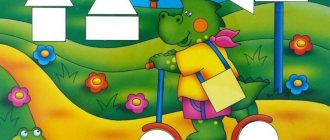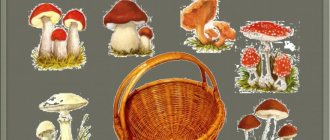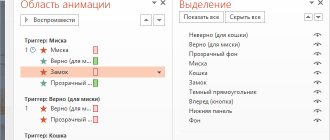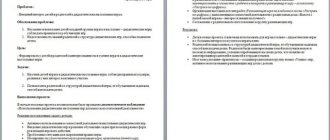Find the odd one out
A didactic game on ecology reinforces knowledge about insects and forms an understanding of their differences from other living beings.
The teacher lists four creatures, the children say which word is the odd one out:
- rabbit, raccoon, wolf, [bee];
- sparrow, [ant], rook, quail;
- moth, dragonfly, [marten], bumblebee;
- dragonfly, locust, [bee], ladybug;
- mosquito, cockchafer, [lizard], butterfly;
- grasshopper, moth, [tit], midge;
- bug, cockroach, [bee], aphid;
- lizard, [dragonfly], turtle, toad.
Name the insect
To conduct an ecological game that forms the concept of “insects,” you need to cut the pictures into small parts, which depict:
- flying dragonfly;
- fly;
- caterpillar on a flower;
- butterfly with open wings;
- ladybug;
- nectar collecting bee;
- beetle on a branch;
- grasshopper in the grass.
Children must put the puzzles together correctly.
Edible-inedible
The purpose of the didactic game is to teach preschoolers to distinguish between edible and inedible mushrooms. This activity requires pictures of mushrooms and a basket.
The teacher asks a riddle about a mushroom. Children guess and find the image among the pictures. If the mushroom is edible, put the picture in the basket.
Teaching ecology in a playful way arouses interest in children, develops curiosity, thinking ability and desire to understand the world around them, and broadens their horizons. Preschoolers consolidate knowledge about the world around them and gain an understanding of the relationships between natural objects and phenomena.







